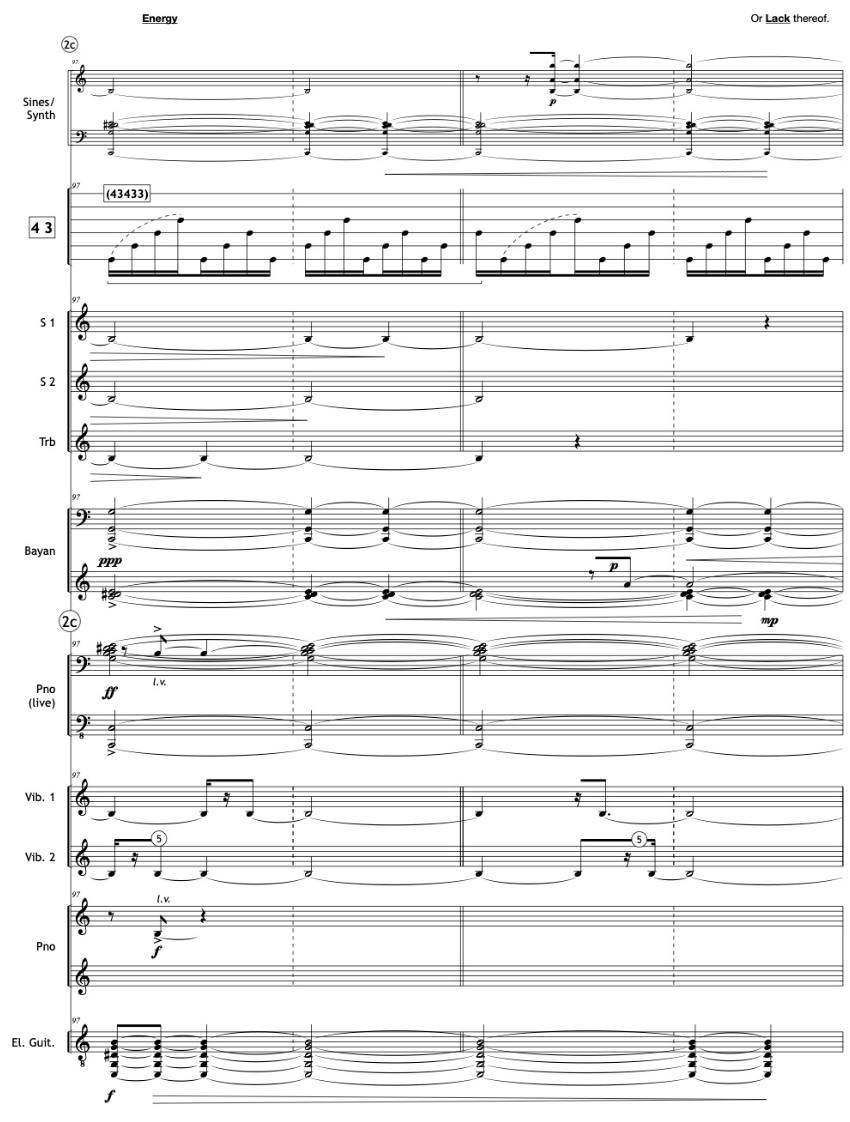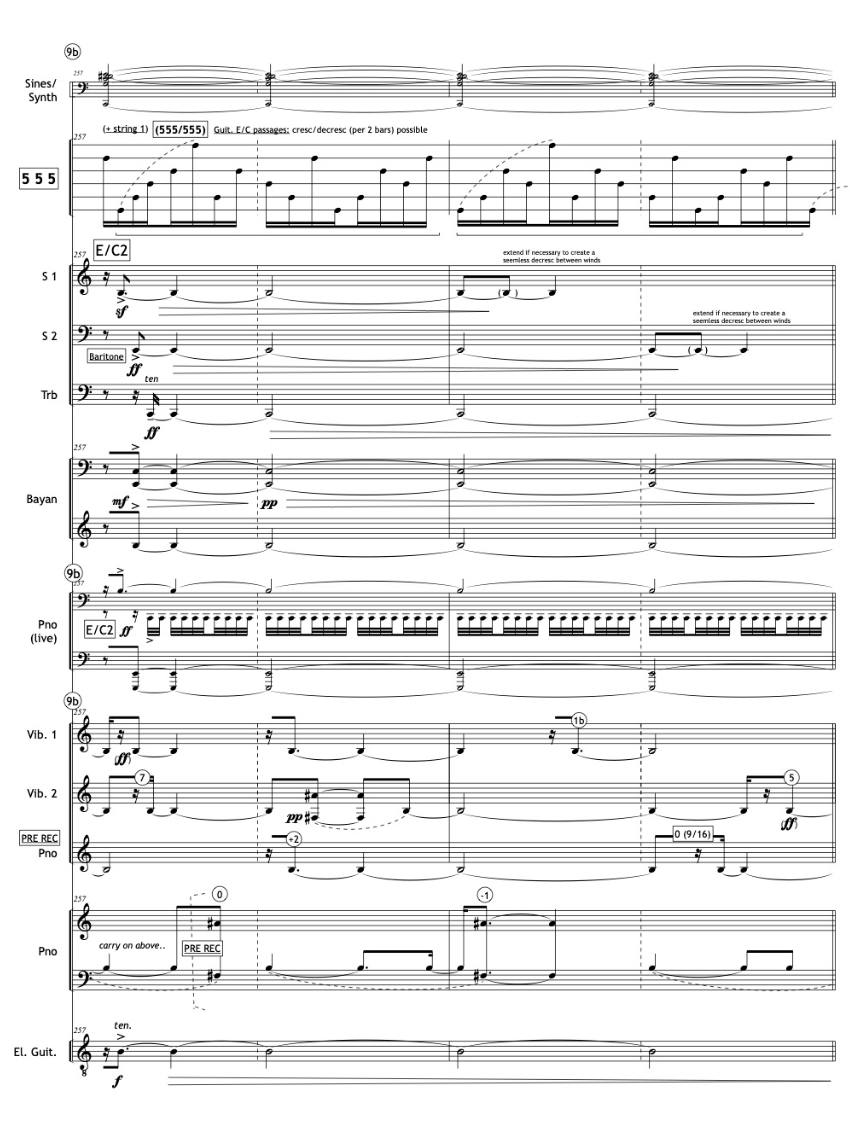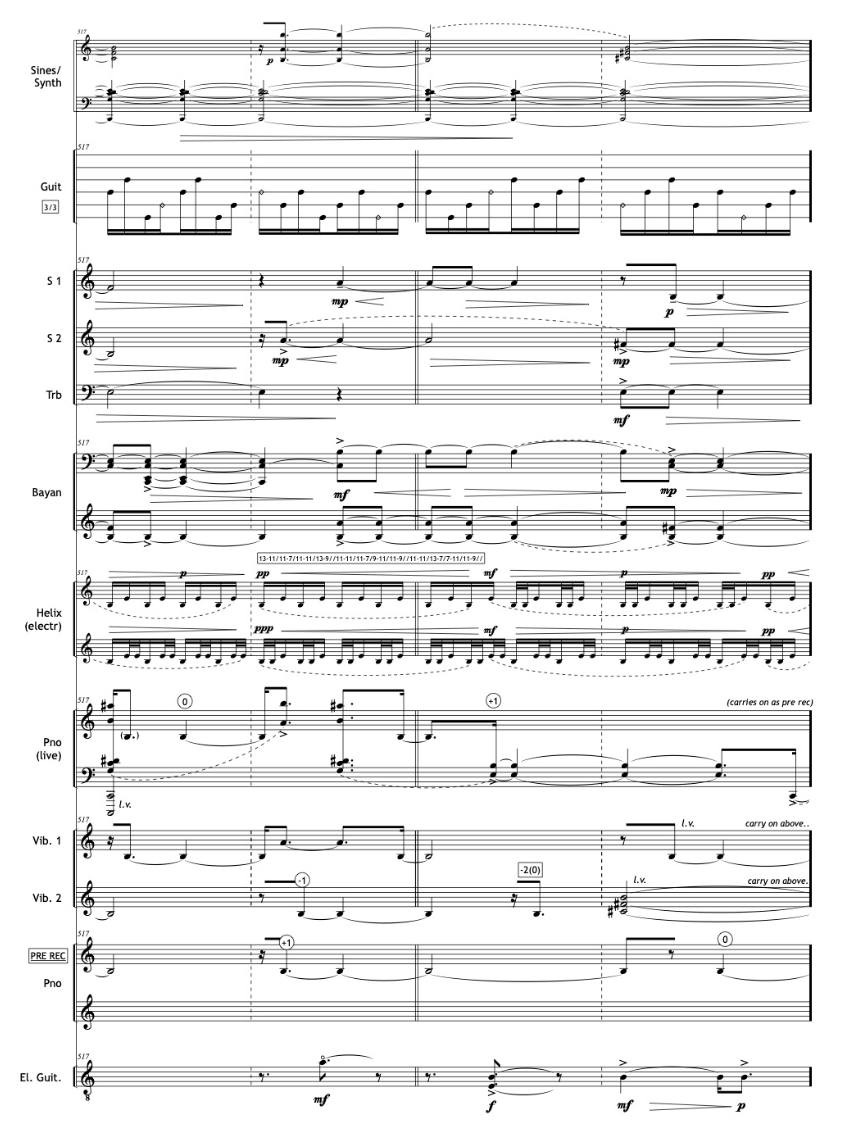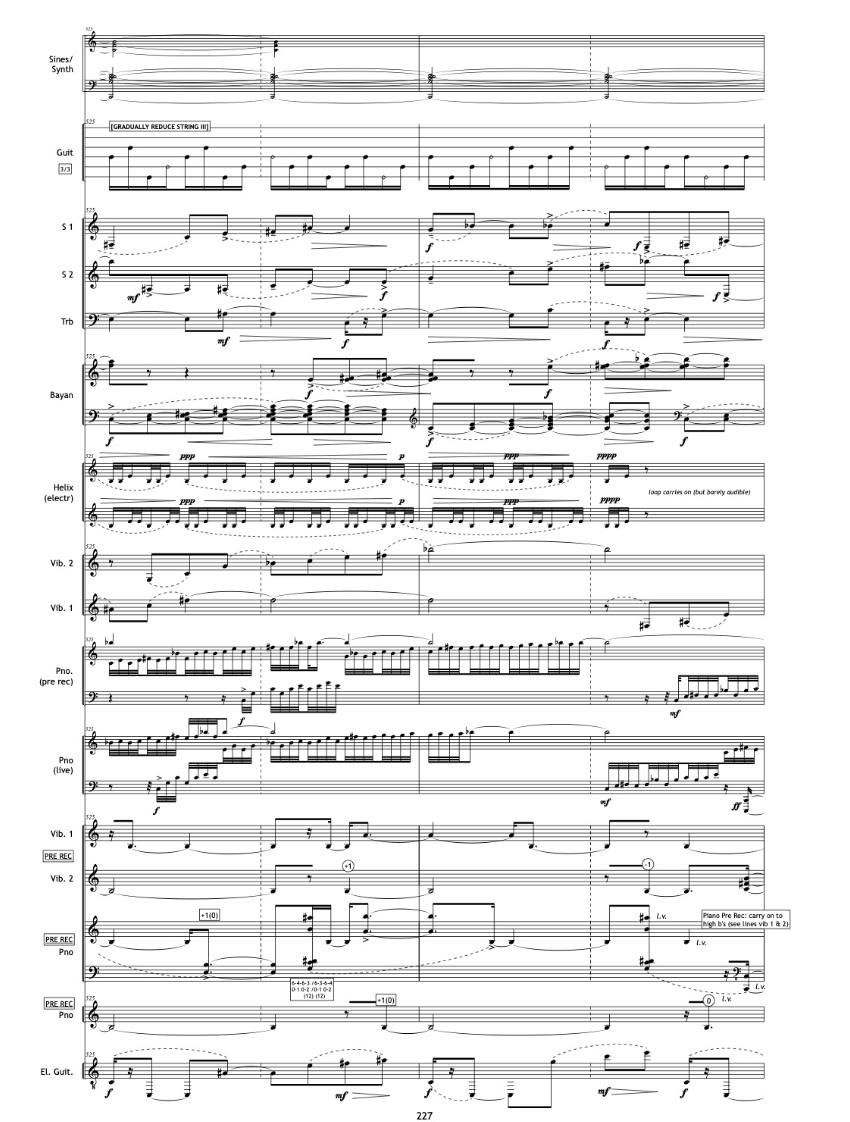No 61 Environments (2017-2019)
For 2 saxophones, trombone, 2 vibraphones, bayan, piano/synth, 2 guitars, live electronics & pre-recorded tracks
Commissioned by: Ensemble Klang XL, with financial support from the Netherlands Fund for the Performing Arts
First Performance: December 20 2018, Festival Musical Utopias, Korzo, Den Haag
Instrumentation: 2 saxophones, trombone, 2 vibraphones, bayan, piano/synth, 2 guitars, live electronics & pre-recorded tracks
Duration: 85’
Special Features: Performance requires sound engineer, amplification for all musicians, click tracks throughout, 6 speaker surround sound setup, live electronics, Ableton sound patch, 6 different guitars and 2 synthesizers
Additional information: Ensemble Klang website
![]() Score samples Mono
Score samples Mono
![]() Score samples Watts
Score samples Watts
![]() Score samples Stereo
Score samples Stereo
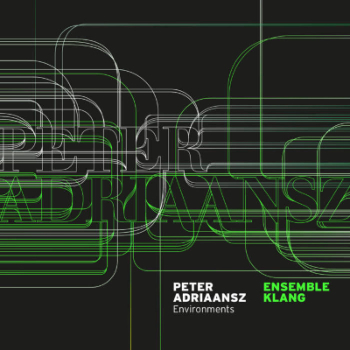 Listen/Buy: Ensemble Klang on Bandcamp
Listen/Buy: Ensemble Klang on Bandcamp
Info/Program note:
Environments is an 85’ work for amplified ensemble, live electronics and soundtracks consisting of speech recordings and pre recorded materials. The piece employs a special setup, built around a collection of microtonal, re-strung guitars which are extended and complemented by an ensemble of winds, vibraphones, Bayan, keyboards and synthesizers.
In three continuous movements, titled Mono, Watts and Stereo, Environments seeks to explore some of mankind’s intellectual, spiritual and political ‘pursuits’. Each movement translates these ‘pursuits’ to an accompanying philosophical concept, which is then mirrored in the compositional technique as well as the overall sound design. In this way Mono deals with the concept of Linearity, Watts with the concept of Cyclicity and Stereo with the concept of Polarity. As a whole Environments can perhaps be seen as a requiem of sorts to some of the ideas and ideals of the 20th century. Ideas which are by no means depleted or devoid but, due to their inherent ‘slowness’, will have to be redefined again for our digital age.
An important part of Environments is devoted to the interplay between music and pre- recorded speech. Each of the parts is accompanied by a speech track which in its own way illustrates the ideas underlying the music. The texts, all clearly Buddhist in nature, are spoken by three different narrators, each with their own speed, tone and pacing, and are taken from the travelogue sections of Robert Pirsig’s Zen and the Art of Motorcycle Maintenance, a 1970’s radio broadcast by Beat philosopher Alan Watts and an expanded version of The Principle of Polarity, as formulated in the somewhat mysterious Kybalion. The work then proceeds to play out a game on several simultaneous levels, between the musical logic, the spoken content and the ensuing sonic design, thereby requiring an alertness of the listener on multiple levels at the same time.
Underneath Environments, in its own ‘pursuit’ decidedly idealistic, perhaps even completely Utopian.. lies a personal inquiry into our current times and prevailing ideas about context and simultaneity, expressed perhaps most perfectly via the modern creed ‘Broad is the new Deep’. Both aspects, ‘context' (combining space, time and location, both present as well as past and on literal as well as metaphoric levels) and ‘simultaneity’ (through the combination of autonomous musical material with found, pre-existing material, each with their own specific messages and meaning) served as focal points of investigation in an effort to gain more insight into our present-day quest for narrative and an all-enveloping ‘experience’.
Can autonomous messages be digested simultaneously? In which ways does simultaneous listening effect the combined components if both wish to remain independent? How do we listen? And how does a composer navigate around this? Perhaps most importantly: what is the added value? Does one medium automatically go at the cost of the other? Or does ‘broad’ ultimately require just as much depth as ‘deep’?
Starting from one-dimensional ‘private’ pursuits (expressed through the metaphor of the road) Environments gradually travels outwards, via transcendent pursuits (expressed through the idea of how man organizes time - i.e. ‘life’ - or vice versa) and eventually ends up on a more worldly, dualistic plane, where political pursuits and ideas of opposition are eventually wiped out and irredeemably lead back to the single, one-dimensional line: the continuum, which, like Shakespeare’s ‘actors’ on the stage, perhaps dictates more of individual life than most would care to admit.
![]() NRC - review of Environments, September 2022
NRC - review of Environments, September 2022
![]() Volkskrant - review of Environments, September 2022
Volkskrant - review of Environments, September 2022
![]() De Doelen - program notes of Environments, September 2022
De Doelen - program notes of Environments, September 2022
![]() Parool - cd review of Environments, March 2021
Parool - cd review of Environments, March 2021
trailer
interview







